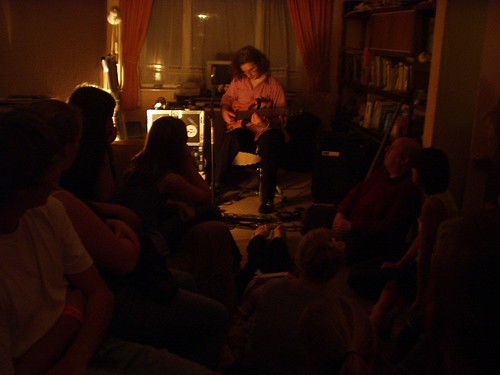 So apparently Warner have decided that streaming services aren’t part of the future of music online after all.
So apparently Warner have decided that streaming services aren’t part of the future of music online after all.
From the BBC website article:
” Warner chief executive Edgar Bronfman Jr said: “Free streaming services are clearly not net positive for the industry and as far as Warner Music is concerned will not be licensed.
“The ‘get all your music you want for free, and then maybe with a few bells and whistles we can move you to a premium price’ strategy is not the kind of approach to business that we will be supporting in the future.” “
Now, that’s not a lot to go on, so please bear that in mind as I write.
However, here are a few mistakes that seem apparent from Warner’s position as expressed in the article.
- ‘Listen to all the music you want for free’ is not the same as ‘get all the music you want for free’ – streaming ≠ownership, and portability is a chargeable commodity. Hence the reason I describe Spotify Lite as on-demand radio.
- ‘Net positive for the industry’ is an utterly spurious metric. Why should any one way of accessing music be ‘net positive for the industry?’ especially one that is an awesome discovery platform that costs neither side much at all. Spotify is all about discovery. And people can only be fans and therefor financially invested in music they listen to. If getting them to listen is free, the world is a much better place than it was when advertising dollars ruled the discovery game.
- Warner are talking about Warner, not as Carl Morris pointed out on Twitter, what is best for artists, genres or regions. If streaming services could be proved to be having a detrimental effect on a particular artist’s career, then pulling their music from the service would perhaps be a decision worth discussing. Blanket judgements for an entire media empire – without considering how many artists are themselves active supporters of streaming as a concept, and who are able to directly attribute an increase in new listeners to the ability of their fans to share links to free streams with their friends – are worse than useless. They’re reckless.
- There’s no mention here of whether or not sales have dropped across the board out of line with any projections of how the curve would be without streaming services. If streaming is a discovery mechanism, then the revenue would naturally be found elsewhere, as we saw with the Lady GaGa story of small payouts from Spotify, but still being able to sell 20 MILLION paid downloads in the same time-period.
People paying a tenner for Spotify is no better or worse for the industry than them paying a tenner to eMusic to buy the things they’ve found using Spotify, or spending ten quid a month on CDs or other downloads. And lets not forget that statistically, those who spend £120 a year on music are a pretty small minority of music consumers. They always have been. A tenner a month is a lot for yer average listener to fork out to rent some streams (if you stop paying, all the content and stored playlists you’ve created on your mobile device is lost. Any downloads happening via the Spotify interface are happening at 79p a track, via 7digital (more big industry stupidity – make them cheaper, you eejits!)
When I listen to music, whether free or paid, I’m not thinking about ‘the industry’. I’m not supporting ‘the industry’ when I buy music, I’m giving it to artists in exchange for them being awesome. Awesomeness is something I’m willing to put a cash value on. As are lots of people.
Discovery is something that benefits the person being discovered at least as much as the one doing the discovery – that’s the foundational principle of advertising, and is why record labels pay for adverts. They’re even willing to illegally pay for airtime.
Here, Warner are being retrogressive, making blanket decisions based on ‘the industry’ not artists, have no idea what streaming services actually provide to their users, and don’t appear considered how awesome free discovery mechanisms are for everyone along the chain outside of their old industry metrics that placed cash (from both sides) in front of the discovery process.
Another Major Label FAIL.
Meanwhile, here’s some awesome music you can have for free, or pay for if you want to thank Ben Walker for his awesomeness:





